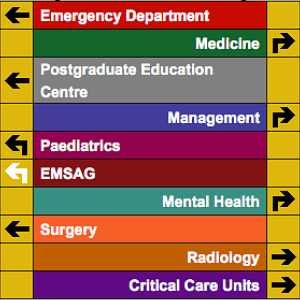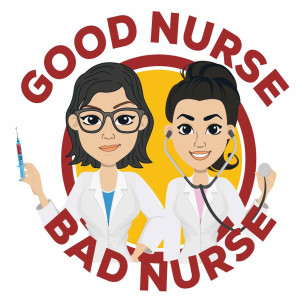

Welcome to the St. Emlyn’s Podcast! I’m Simon Carley, and today we’re going to journey through December 2018. This month has been filled with intriguing discussions, significant insights, and top-notch blogs from a variety of experts. As we wrap up the year and get ready to welcome 2019, it’s the perfect time to reflect on the key topics that have shaped our discussions around Christmas and the New Year.
Tribalism in Healthcare with Ross FischerFirst up, we have an insightful contribution from Ross Fischer, a key member of the St. Emlyn’s team and a Pediatric Surgeon based in Sheffield. Ross has delved into the topic of tribalism in healthcare, a subject we've explored previously but which remains ever relevant.
Tribalism refers to the formation of groups or 'tribes' based on common beliefs and cultures, which significantly influences our behaviour and treatment approaches in healthcare. Ross's blog revisits a remarkable presentation by Vic Brazil at SMACC Gold in 2014, highlighting how tribalism drives our interactions and behaviours within the medical field.
In healthcare, tribes often form around specialities – emergency physicians, surgeons, anaesthetists, etc. While having a strong group identity can be positive, it can also lead to unhealthy competition and misunderstandings. For example, emergency physicians might unfairly label surgeons as uncooperative, which is not only untrue but also counterproductive.
Ross's extensive experience across various medical cultures has given him a unique perspective on this issue. His blog emphasizes the importance of recognizing and mitigating tribalism to foster better cooperation and ultimately improve patient care. Some strategies he suggests include using personal names during referrals, face-to-face communication, being supportive rather than critical when things go wrong, organizing social events across specialities, and calling out tribalism in casual conversations.
Conservative Management of Chest TraumaNext, I’ve put together a blog on the conservative management of chest trauma, inspired by several presentations I've done this year on torso trauma. The increasing body of evidence suggests that not all chest injuries, such as hemothoraces and small pneumothoraces, require invasive intervention.
Reflecting on my early days in emergency medicine, we operated under the strict guideline that any pneumothorax or hemothorax warranted a chest drain. However, advances in imaging technology, like whole-body CT scans, have revealed that many small pneumothoraces and hemothoraces were previously undetected and thus untreated without significant complications.
Recent studies, including a substantial observational study by Walker, support the safety of conservative management for many of these cases. This shift in practice aligns with our experiences here in Virchester, where we often opt to observe rather than immediately intervene with chest drains, even in ventilated patients. The evidence is still evolving, but it’s encouraging to see data supporting less invasive approaches.
Intensive Care Insights with Dan HornerDan Horner, Professor of Emergency Medicine at Virchester West, has shared three exceptional posts from our time at the Intensive Care Society conference in London. The interface between emergency medicine and ICU is a critical area, and Dan’s insights are invaluable for anyone interested in this field.
One standout topic from the conference was Tom Evans' presentation on exercise physiology. Though I missed it, the demonstration with Olympic rowers on stage, showcasing their lactate levels, was reportedly phenomenal. This type of hands-on demonstration highlights the extraordinary resilience and adaptability of human physiology, insights that are crucial for both emergency and intensive care practitioners.
In addition to exercise physiology, Dan and I covered the continuum of patient care from the roadside to critical care, emphasizing the importance of effective handovers and collaborative work with paramedics. Our discussions included the zero point survey, ATMIST handovers, and the significance of follow-ups to ensure paramedics receive feedback on their patients' outcomes, all crucial elements for improving patient care and professional practice.
FemInEM Conference Highlights with Natalie MayNatalie May wrapped up our review of the FemInEM conference, emphasizing the multifaceted nature of medicine. The themes of passion, role models, organization, consistency, persistence, mentorship, and leadership were central to the conference discussions. FIX19, the upcoming FemInEM event, promises to continue this tradition of exploring how medical professionals can impact not just clinical outcomes but also their own lives, colleagues, and the broader community.
HIV Management in Emergency MedicineGareth Roberts, a recent addition to our consultant team in Manchester, provided a comprehensive review of HIV management from an emergency physician’s perspective. His blog focuses on post-exposure prophylaxis (PEP) and pre-exposure prophylaxis (PrEP), critical areas for emergency physicians to master.
With the ongoing changes in HIV treatment and prevention, understanding the nuances of PEP and PrEP is vital. Gareth also touches on the rise of chemsex and its implications for emergency medicine, emphasizing the need for awareness and appropriate management strategies for patients involved in these practices.
Trauma Laparotomy: A Decade of DataRich Cardens explored the intriguing findings from his PhD research on trauma laparotomy. Despite significant advancements in trauma care over the past decade, the mortality rate for trauma laparotomy has remained unchanged. This surprising discovery prompts a deeper investigation into the factors influencing these outcomes.
Rich's research compares data from the JTTR military registry and the Royal London Hospital, highlighting the need for a comprehensive trauma emergency laparotomy audit. Understanding why mortality rates haven't improved could lead to better strategies and practices in trauma care.
Game of Thrones Mortality StudyFor a lighter, yet still educational note, Janos Byan Beethar found an entertaining yet insightful study in the Injury Prevention Journal. This study analyzed the mortality of characters in Game of Thrones, a bit of fun that doubles as a critical appraisal exercise. With over half of the 330 characters meeting untimely deaths through injury, burns, or poisoning, the study offers a unique way to engage with epidemiological concepts and cause-effect associations.
Interestingly, the study also suggests that characters who change allegiances have a higher survival rate – perhaps a subtle hint at the importance of adaptability in both fictional and real-world scenarios.
Looking Ahead to 2019As we close out December, it’s clear that 2018 has been a year of growth, learning, and exciting developments here at St. Emlyn’s. From addressing tribalism in healthcare to exploring conservative management strategies for chest trauma, and from the latest insights in intensive care to the evolving field of HIV management, our blogs have covered a wide range of critical topics.
We look forward to continuing this journey in 2019, bringing you the latest research, discussions, and insights in emergency medicine. Whether through our blogs, podcasts, or live events, we aim to foster a community of continuous learning and professional growth.
Stay connected with us on Twitter, Facebook, the blog, and the podcast. We’re here to support you in your practice and to ensure you stay at the forefront of emergency medicine. Here’s to another great year with St. Emlyn’s!
More Episodes
All Episodes>>Create Your Podcast In Minutes
- Full-featured podcast site
- Unlimited storage and bandwidth
- Comprehensive podcast stats
- Distribute to Apple Podcasts, Spotify, and more
- Make money with your podcast











